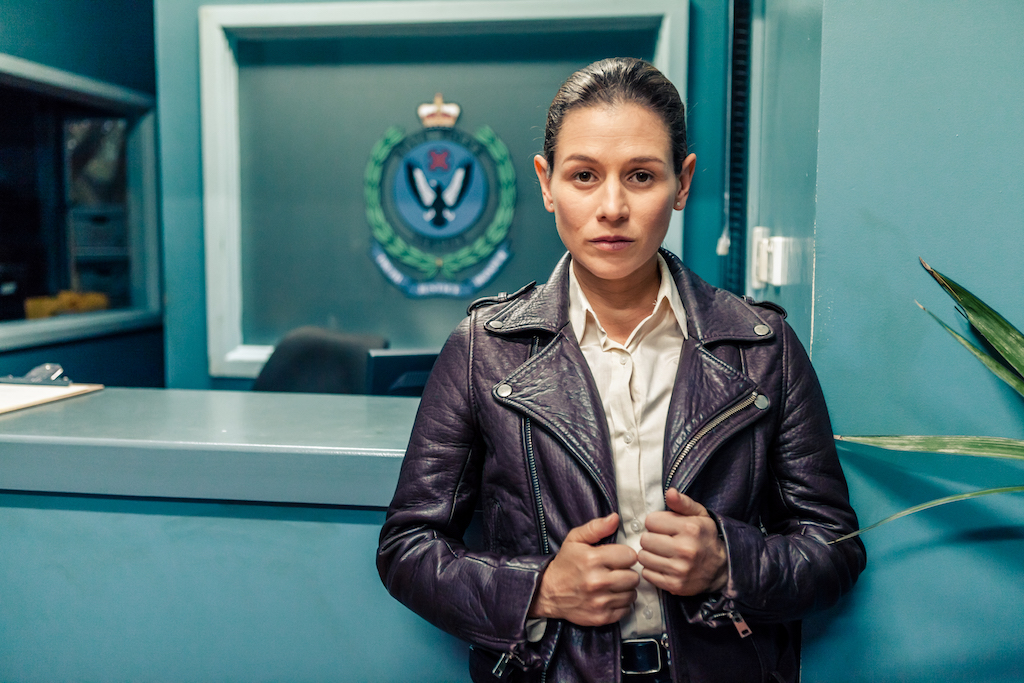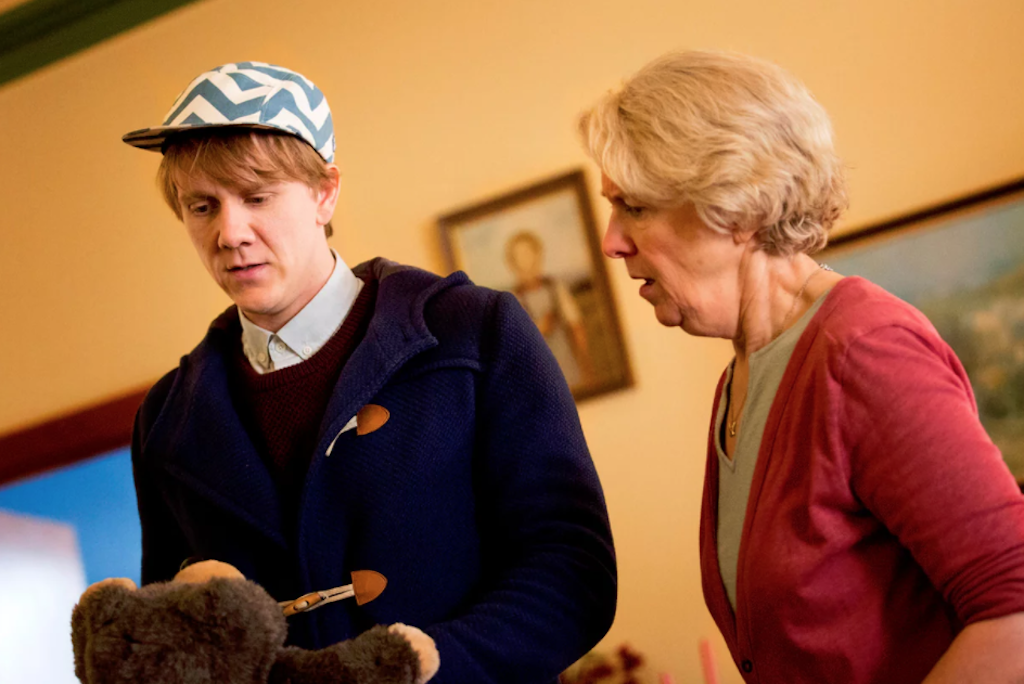The Best And Worst Moments Of Queer (And Nearly Queer) Cinema In 2016
There were some amazing films this year, but there were just as many missed opportunities.
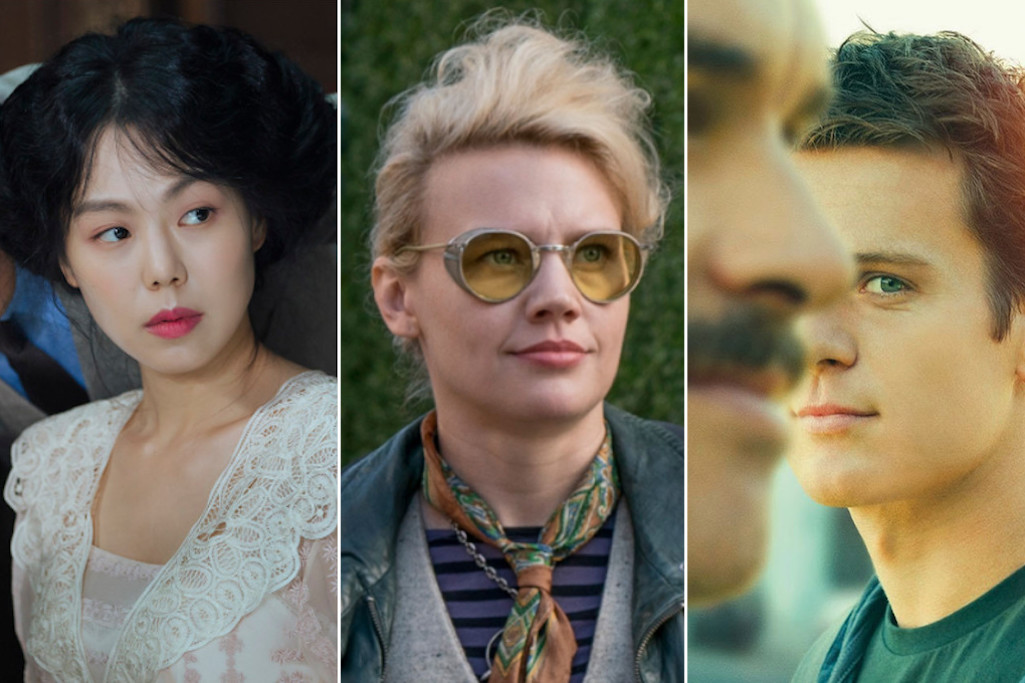
2016 wasn’t a particular gay ol’ time at the movies. In fact, the trend of the last decade has been the eventual receding of queer content from the cinema to film festivals and home entertainment. This means it’s relatively rare to find films — major releases or at the arthouse — exploring themes with LGBTIQ characters.
Sometimes that means taking what we can when we get it — you know you’re starved for choice when you’re heaping praise on Independence Day: Resurgence just for including a gay romance so minor it’s more of a sub-sub-sub-plot — but thankfully there was enough to keep us satiated at the movies while TV allowed the rest of our storytellers a different canvas to work on with the likes of Transparent, Please Like Me, London Spy and Deep Water.
Prestige Passions
2016 started with a bang thanks to the sumptuously gorgeous Carol. Todd Haynes’ 1950s-set romance between Cate Blanchett and Rooney Mara remains the best film released in Australian cinemas this year. It is so good that it deserves to be a new Christmas-time tradition.
This tear-inducing love story was somehow labelled ‘cold’ and ‘icy’ by some (typically all straight male) critics who preferred the brutal masculine excess of The Revenant. Their loss, really, since it’s only getting rarer and rarer to find films with the kind of heart-tugging power that Carol has, scene after scene. This is a masterpiece, pure and simple.
That word has also come up frequently when talking about The Handmaiden, the latest film by Korean director Park Chan-wook who has adapted Sarah Waters’ novel Fingersmith (ahem). It is another of Chan-wook’s divinely assembled films, but to my mind a much better one than the likes of Oldboy that typically rise the top of any discussion of his work. This film is often explicit, but always captivating with a sense of erotic ennui that transports the story of a con-artist falling for her prey from Victorian England to Korea with the ease of one of the world’s best and most stylish filmmakers.
Looking: The Movie may have been made-for-TV, but that didn’t stop it from being a work of emotional truth and beauty that I have found swirling around my head months after first viewing. Much like the series it was spun-off from — HBO granted the team a movie to wrap up the axed series’ loose ends — Looking: The Movie succeeds thanks to its relatable action and the specificity of its drama.
Director Andrew Haigh found much success with Weekend and 45 Years, and perhaps if not saddled with the weight of being a movie based on a TV show, Looking: The Movie would have received its due credit. Its vignette-style storytelling was great in confronting issues of fidelity, romance, fear, the evolution of sexuality, the shifting sands of friendship and much more amid the complicated boundary-less world of modern dating.
The one Australian film that struck a chord for me was Boys in the Trees — the feature debut of Nicholas Verso who had previously won acclaim and awards for his excellent short film The Last Time I Saw Richard. Blending fantasy with 1990s Australian suburban kitsch, this Halloween-set drama finds its characters between worlds and realities; a defining scream in the dark for people to listen to the voices and the stories of queer youth, which are often told without spoken words.
In the light of Tyrone Unsworth and others whose names don’t often get printed in newspapers, it speaks volumes to a need for compassion and empathy.
True Stories
After last year’s remarkable Holding the Man, it was a surprise to find there was still much to the story of Timothy Conigrave that hadn’t been said when Nikolas Bird and Eleanor Sharpe’s Remembering the Man came along this year. Told predominantly via a recently unearthed audio interview with the author, this sublime doco also made extensive use of photographs, writings, videos, and more from the Conigrave family.
Overseas, Irish drag queen Panti Bliss was the focus of The Queen of Ireland, a delightful look at both the life of Panti (aka Rory O’Neill) as well as his leadership through the country’s historic referendum on marriage equality. Conor Horgan’s film was given particular weight in Australia, of course, given our own well-documented troubles with the legalisation of marriage for everybody. At a time when it can all feel like we’re a bit lost at sea, Panti’s rise to fame as the face of this important issue in such a staunchly religious country should inspire us to keep moving.
Equally joyful is Australian director Rohan Spong’s Winter in Westbeth, which follows three later-in-life queer artists who reside at Westbeth, a retirement village of sorts for elderly artists in New York City. A companion piece to All the Way Through Evening, Spong’s earlier document of a Lower East Side musician’s mission to perform the compositions of musicians who died of AIDS at an annual recital, Westbeth is a charming glimpse into the life of a once-famed dancer, poet and experimental filmmaker.
I am thankful for being let into the lives of these divine queer identities whose legacies will now be remembered as they deserve to be.
The Almost-Rans
Some of the moments which seemed most exciting for queer cinema this year were also the most frustrating — many didn’t get their time on-screen at all.
It was disappointing to see fashion designer/now-director Tom Ford vanquish gayness (so to speak) from his sophomore effort, Nocturnal Animals — his ugly paean to soulless heterosexuals in Los Angeles.
It was eye-rollingly predictable to see Timur Bekmambetov’s latest Ben-Hur remake scrap the only thing about the 220-minute 1959 epic version interesting — the queer subtext between stars Stephen Boyd and an unsuspecting Charlton Heston.
And maybe flamboyant Spaniard Pedro Almodovar wanted to atone for the sins of uber-queer, but extra-terrible I’m So Excited, but the queer icon’s latest, the subdued mystery Julieta, was absent of even the camp that often makes his film so invigorating.
Elsewhere, Pixar’s Finding Nemo did not feature a gay couple on screen (so much for that boycott), Deadpool’s promise of a “pansexual” leading man didn’t go as far as many hoped, and the filmmakers behind Ghostbusters made Kate McKinnon’s delightfully goofy Jillian Holtzmann more sexually ambiguous than out and proud like the actor portraying her.
Rogue One: A Star Wars Story barely featured everyone’s favourite gay British robot, C-3P0, and there was nothing akin to Oscar Isaac’s flirtatious lip bite to give LGBTIQ viewers a thrill. And Steve Rogers and Bucky in Captain America: Civil War? Close, but no cigar, but they got about as close as you can get without cutting to a shot of a train passing through a tunnel and waves crashing on a beach.
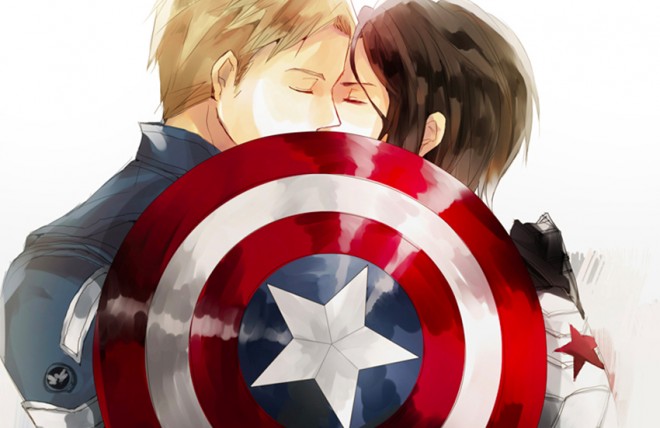
Pictured: not a film still.
Leave it to Seth Rogen then to once again be the most questionably progressive multi-hyphenate in Hollywood. As the star and writer of Bad Neighbours 2, he shoehorned in the gay wedding of a supporting character (who was straight in the original), and by co-directing Sausage Party he did all sort of unimaginable things with hot-dogs, tacos, and tequila bottles.
I don’t know whether the floods of fratty dudebros who see his movies understand that Rogen is very aware that sexuality has nothing to do with the violent masculinity that so many men crave and making fun of them for it, but it’s a start.
Oh, and Channing Tatum? Look, we can only dream of how the movie Hail, Caesar! could have been.

And Then There Was PeeWee
I take back everything I said. The year’s most tender romance may have just been between PeeWee Herman and Joe Manganiello in PeeWee’s Big Holiday. And who could blame the bow-tied man-child? It’s a romance for the ages.
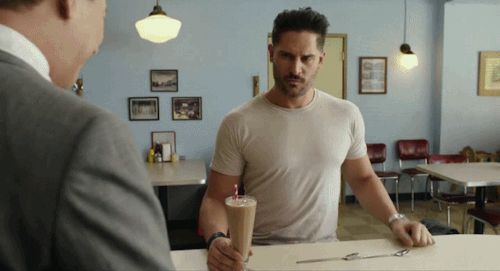
–
Glenn Dunks is a freelance writer from Melbourne. He also works as an editor and a film festival programmer while tweeting too much at @glenndunks.
